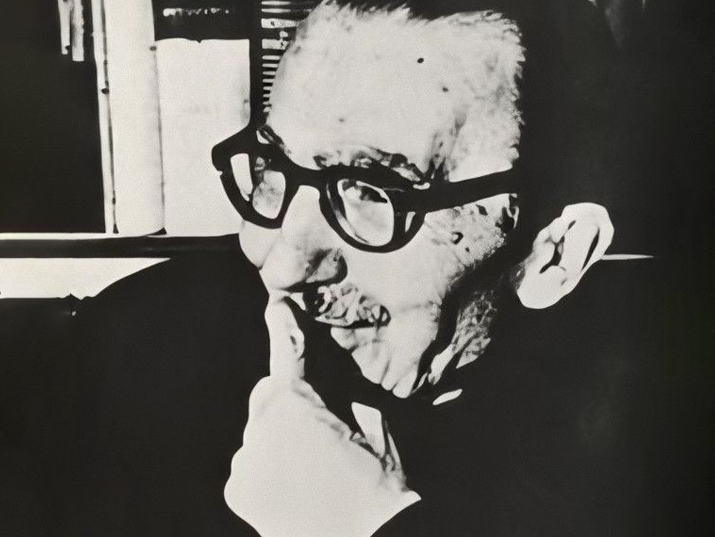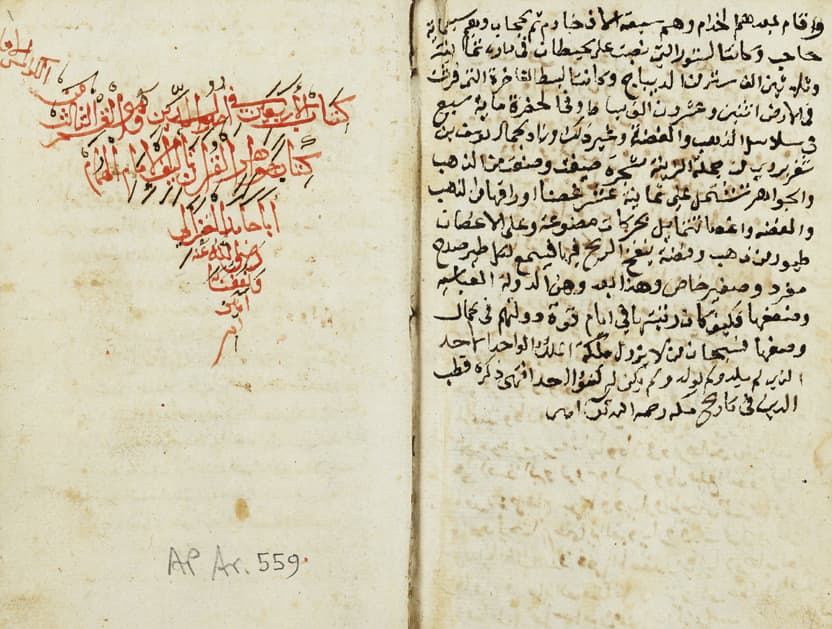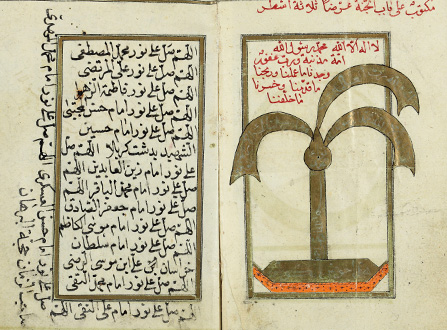Moshe Ya’akov Ben-Gavriel was born as Eugen Hoeflich in Vienna in 1891. During WWI, he served as an officer in the Austrian Army. In this capacity he visited Jerusalem where he discovered his own personal connection to the Land of Israel. In 1927, Eugen immigrated to Jerusalem with his wife, changed his name to Moshe Yaakov Ben-Gavriel and began working as a journalist, writing for European and American outlets and as a novelist. After serving in the Haganah and the British army’s WWII Jewish Brigade, Ben-Gavriel began writing novels and short stories, some describing the grim fate of the Jewish people as a result of the Nazi conquest and others providing humorous depictions of Israeli society. His work received the most acclaim in Germany, and he was featured in interviews and on speaking tours. His novel 'Das Haus in der Karpfengasse' (The House in the Carp Street') inspired a film that won a German award in 1965, the year that he died in Jerusalem.
Moshe Ya'aqov Ben Gavriel Archive
لتكبير النص لتصغير النص
| العنوان |
Moshe Ya'aqov Ben Gavriel Archive. |
|---|---|
| عنوان بديل |
כותרת בעברית: ארכיון משה יעקב בן גבריאל. |
| مساهم |
Miryam,Ben Gavriel 1893-1980 ((Creator of the archive)) |
| ملاحظات |
The Central Zionist Archives |
| ملاحظة اقتباس |
ARC. Ms. Var. 365, Moshe Ya'aqov Ben Gavriel Archive, Archives Department, National Library of Israel, Jerusalem |
| هذا جزء من |
Moshe Ya'aqov Ben Gavriel Archive. |
| lds70 |
Ms. Var. 365 |
| مستوى التوصيف |
Fonds Record |
| lds57 |
Moshe Ya'akov ben Gavriel was born in Vienna in 1891 as Eugen Hoeflich. He began writing at a young age in German, particularly in the expressionist style. During the First World War he served as a soldier and as an officer in the Austrian army and in 1917 he was sent to Jerusalem as commander of an Austrian unit. During his stay in Jerusalem he learned Hebrew and Arabic and fell in love with the region and the idea of Zionism. His interest in Zionism was felt to interfere with his duties in the Autrian army, so he was transfered back to Austria, where he participated in Zionist organizations. He was one of the founders of " Hapoel Hatzair " in Austria. He was also the secretary of the association of writers and artists and an officer of the Jewish Legion in Vienna during the revolution in Austria after the First World War. In 1920, he was a delegate to the "HaPoel HaTzair" congress in Prag. He edited the weekly "Ezra" and published the magazine "Das Zelt", a magazine that was dedicated to articles written by Jewish writers and also included Jewish art. In 1927 he immigrated to Israel together with his wife, the actress Martha Schnabel . The couple settled in Jerusalem and changed their names to Moshe Yaakov ben Gavriel and Miriam ben Gavriel. He joined the Haganah and during World War II the Jewish Brigade. As a journalist he wrote mainly for European newspapers and for Jewish and non-Jewish newspapers in the western world, and also for the Palestine Post in Israel. At the outbreak of World War II, the newspapers for which he wrote were closed by the Nazis or changed their direction, so that there was no longer room for articles about the Middle East by a Jewish journalist. He wrote novels and short stories, most of them in German. His works were also published in Hebrew, but only as translations of the German original. His writing describes the character of the land and people of Israel, and uses a language that expresses a strong affection for his new home. Following the reports of the Nazi invasion, Ben Gavriel wrote his important book "Das Haus in der Karpfengasse", in which he describes the fate of Jewish and non-Jewish tenants in a fictional house in Prag during the first two weeks after the occupation of Czechoslovakia by the Nazis in 1939. This book later served as the basis for a German film which won the German "Golden Film" award in 1965. After World War II, Ben Gavriel returned to work as a journalist and at the same time continued to write novels, stories and sketches. He gained great popularity in Germany with his light and humorous stories that tell about the young Israeli society. Due to his great success in Germany, he traveled there to give lectures to various audiences, read his letters in public, was invited to speak on the radio and became a sought-after conversation partner with German intellectuals and cultural figure. He died in 1965 in Jerusalem. |
| lds79 |
The archive was received in 1966 from Miryam Ben Gavriel according to his will. Additional materials were received until 1978. |
| lds58 |
The materials are predominantly in German, some pieces are in English, French, Hebrew, Dutch and other languages. |
| الإعتمادات |
Moshe Ya'aqov Ben Gavriel Archive, The National Library of Israel. Digitization and cataloguing of this fonds was funded by Deutsche Forschungsgemeinschaft (DFG / German Research Foundation) under Germany's Excellence Strategy - EXC 2176 'Understanding Written Artefacts: Material, Interaction and Transmission in Manuscript Cultures', project no. 390893796. The research is conducted within the scope of the Centre for the Study of Manuscript Cultures (CSMC) at Universität Hamburg. |
| رقم النظام |
990026261730205171 |
| קישורים |
תמונת ארכיון |
عند كل استخدام، يجب تحديد المادة في النموذج التالي:
Moshe Ya'aqov Ben Gavriel Archive, The National Library of Israel. Digitization and cataloguing of this fonds was funded by Deutsche Forschungsgemeinschaft (DFG / German Research Foundation) under Germany's Excellence Strategy - EXC 2176 'Understanding Written Artefacts: Material, Interaction and Transmission in Manuscript Cultures', project no. 390893796. The research is conducted within the scope of the Centre for the Study of Manuscript Cultures (CSMC) at Universität Hamburg.
תנאי השימוש:
تمّ وضع شروط استخدام تتناسب مع كل ملف أرشيفي على حدة.
تظهر شروط الاستخدام في صفحة الملف الأرشيفي على موقع المكتبة الوطنية.
لمزيد من المعلومات حول خدمة الاستيضاح عن حالة حقوق التأليف والنشر، وشروط استخدام المواد المتاحة في مجموعات المكتبة، انقروا هنا.
MARC RECORDS
أتعرفون المزيد عن هذا العنصر؟ وجدتم خطأ ما؟

 سجل الدخول باستخدام غوغل
سجل الدخول باستخدام غوغل
 تسجيل الدخول باستخدام فاسيبوك
تسجيل الدخول باستخدام فاسيبوك






